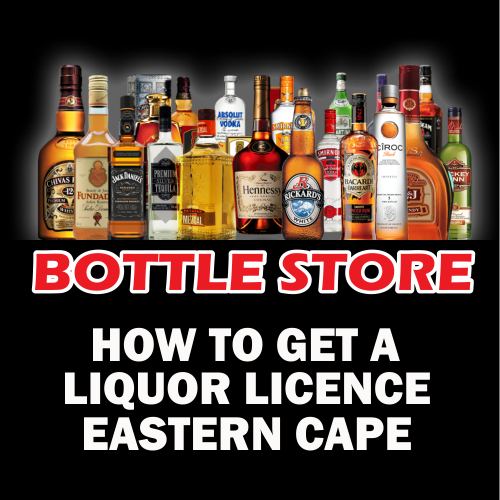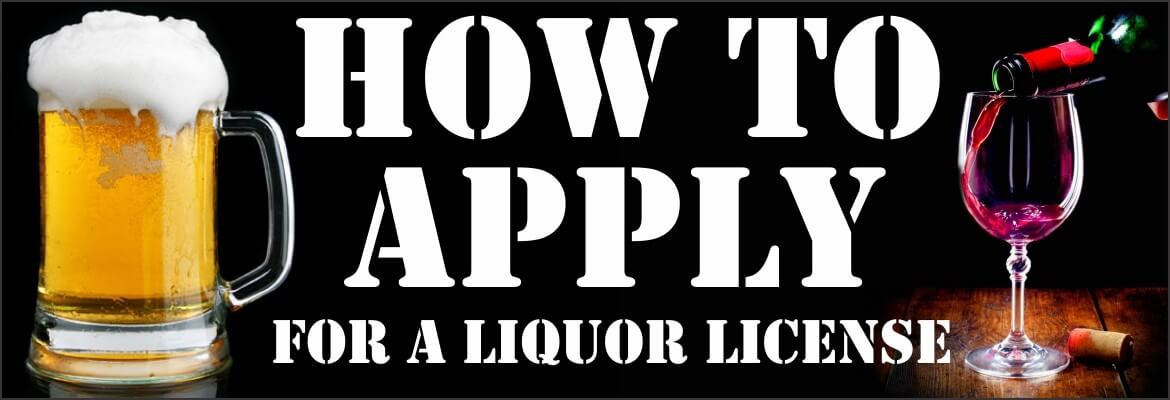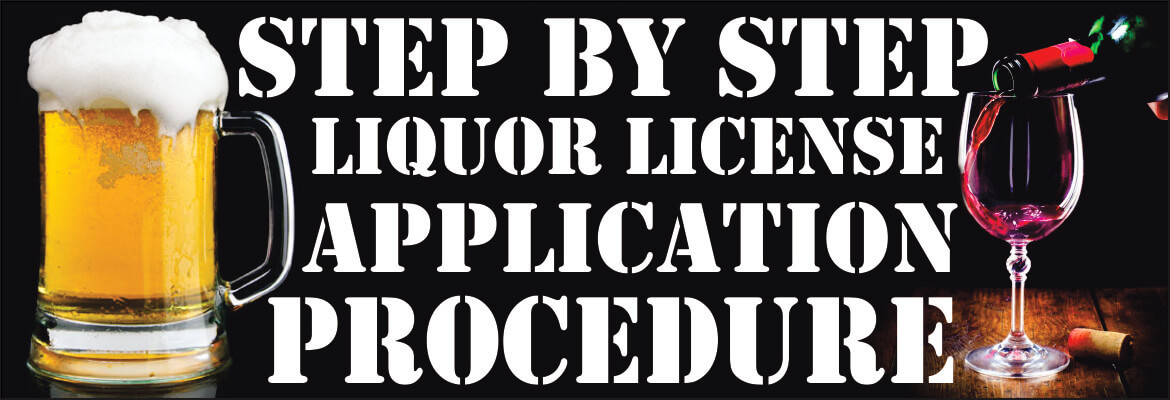Liquor License Application Eastern Cape – EC
The machinery of the act is a Liquor Board, the administrative staff and an inspectorate. All applications are considered and decided by the Board, though in practice the administrative staff assumes powers of decision-making in respect of applications which it does not have and are in conflict with the reported cases of the High Court, such as that an application is not compliant and/or that additional information and documentation must be provided even though it is not prescribed in the legislation, such as identity documents, etc.

69 Devereux
Avenue
Vincent
East London
Tel: + 27 (43) 700 0900
Eastern Cape Liquor Board
EASTERN CAPE LIQUOR LEGISLATION
The Eastern Cape Province – ECP – was the first to introduce its own legislation and it is contained in provincial act 10 of 2003, the regulations thereunder and the amendment to the regulations.
The legislation is the closest to the requirement of being simple, cost effective and compliant with the norms and standards for provincial legislation.
There is no specific date on which an application must be lodged and there is no duty to advertise except for notifying the ward committee member of the ward of the local authority in which the premises will be, of the intention to apply. The advertising is handled by the Board and its administration.
The legislation also creates an internal appeal process which one must first exhaust before you can approach a court of law in respect of a decision of the Board.
The Act does not have various types of licences, only on-consumption, off-consumption or on- and off-consumption. Furthermore all grocer’s wine licences have been phased out and it is no longer possible to sell wine in a supermarket.
The requirements for applying are briefly as follows:
EASTERN CAPE;
REQUIREMENTS FOR NEW APPLICATION
Application for registration
2.(1) Application for registration must be lodged with the board.
(1) The applicant must make a written application for registration substantially in the form of Form 1 of Annexure 2, and must-
(a) furnish in the said application such information as solicited in the form;
(b) declare under oath or truly affirm at the end of the said form that the information contained therein, is true.
(2) Every such application must, at the time it is lodged with the board, be accompanied by-
b a plan of the premises, clearly showing-
(i) the dimensions of each room;
(ii) all doors, windows and counters (where applicable) and means of internal and external communication; and
(iii) the streets and places to which such means of external communication lead;
(b) a description of the premises with reference to the construction, layout, furnishing, fixtures, fittings and floor covering, which description must be contained in a separate document or, if the business is already in operation, colour photos clearly depicting the above;
(c) comprehensive written representations in support of the application;
(d) proof of service of a notice to the ward committee of the area where the premises are situated;
(e) proof of service of notice to a governing body of an educational institution or place of worship within a radius of 100 metres from the premises in respect of which the application is made; and
(f) such documents as Form 1 may require to be attached to the application.
Notice by applicant to ward committees, governing bodies and educational institutions and places of worship
3.(1) An applicant must within seven days of lodgement, serve a notice substantially in the form of Form 2 of Annexure 2 on the ward committee of the area where the premises are situated, every governing body of every educational institution and place of worship within a radius of 100 metres from the premises in respect of which the application for registration is made.
(3) A ward committee contemplated in sub-regulation (1) must, within thirty days of receipt of the notice, submit a report on the consultation with the community to the board and to the relevant municipal council.
All applications must be lodged in East Londen at the offices of the Board and the administration administers the process from there. At this point in time the application fees and renewal fees are still very reasonable though amendments do take place by regulation from time to time.
The renewal process is still a fairly simple administrative process which must take place before end of December of a year with two months of grace and penalty also provided for, as was the position under the old legislation.
All payments must be made into the banking account of the Board and it is advisable to phone to make sure of the payment reference to be used to ensure your payment is traceable within the system.
The ECP Act also allows for the transfer of a licence from one name to another and the removal of a licence from one address to another and the sections dealing with this is section 25.
The ECP Act provides for the following offences:
Part 3 : Offences and penalties
Offences regarding inspections
57.(1) No person shall-
(a) refuse to grant an inspector access to premises to which the inspector is duly authorised to have access;
(b) obstruct, interfere or hinder an inspection who is exercising a power or performing a duty in terms of this Act;
(c) refuse to provide an inspector with a document or information that the person is lawfully required to provide in terms of this Act;
(d) furnish false or misleading information to an inspector;
(e) unlawfully prevent the owner of any land or premises, or a person working for that owner, from entering the land or premises in order to comply with a requirement of this Act;
(f) pretend to be an inspector;
(g) falsify an authorisation or a warrant, compliance notice or compliance certificate contemplated in this Chapter;
(h) fail to comply with a compliance notice issued in terms of this Chapter;
(i) enter any land or premises without a warrant in circumstances requiring a warrant;
(j) act contrary to a warrant issued in terms of this Chapter;
(k) without authority enter or inspect land or premises;
(l) disclose any information relating to the financial or business affairs of any person which was acquired in the exercise of any power or performance of any duty in terms of this Act, except-
(i) to a person who requires that information in order to exercise a power or perform a duty in terms of this Act;
(ii) if the disclosure is ordered by a competent court; or
(iii) if the disclosure is in compliance with the provisions of any law.
Offences regarding trading in liquor
58.(1) No registered person may enter into or be a party to any agreement, understanding or condition whereby any registered person is directly or indirectly bound at any time-
(a) to take delivery of liquor, whether together with any other article or not, from or through any registered person whether to the exclusion wholly or partly of any other registered person or not;
(b) to take delivery of, distribute or keep in stock liquor of a particular registered manufacturer;
(c) not to take delivery of liquor or through a particular registered person; or
(d) not to take delivery of, distribute or keep in stock liquor of a particular registered manufacturer.
(1) No registered retailer may accept delivery of any liquor which has not been ordered by such retailer.
(2) No registered person may fix, maintain or establish the price at which another registered person must sell any liquor.
(3) No registered manufacturer, officer or director of any registered manufacturer shall be the owner, proprietor or lessor of any premises covered directly or indirectly by any wholesaler’s registration.
(4) No registered manufacturer or wholesaler may, either directly or indirectly, give or lend any money or make any donation in cash or in kind to any retailer for the purposes of equipping, fitting out or maintaining and conducting, either in whole or in part, or the establishment of a business operated under a liquor retail registration, except the usual and customary credit for returning packages or containers in which liquor was packed for the market by the manufacturer.
General offences
59.(1) No person may-
(a) sell liquor otherwise than in terms of a registration;
(b) be violent or drunk and disorderly on premises in respect of which a certificate of registration has been issued;
(c) if he, she or it is the owner or occupier of registered premises, allow violent or drunk and disorderly behaviour on that premises;
(d) be drunk and disorderly in or on-
(i) any road, street, lane, thoroughfare, square, park or market;
(ii) any shop, warehouse or public parking garage;
(iii) any form of public transport; or
(iv) any place of entertainment, café, eating house or racecourse or any other premises or place to which the public has or is granted access, irrespective of whether access is granted against payment or is restricted to any category of persons or not;
(e) consume any liquor in any road, street, lane or thoroughfare, or on vacant land adjacent thereto, in an urban area or other area subdivided into erven or plots with streets bounded by such erven or plots;
(f) introduce, possess or consume any liquor on a sports ground that is not a registered premises, to which the public has or is granted access, irrespective of whether access is granted against payment or is restricted to any category of persons or not, except on any registered premises on the sports ground concerned;
(g) falsely represents himself or herself or any other person to be over the age of 18 years in order to persuade a registered person, or his or her agent or employee, to sell or supply liquor to him or her or to that other person;
(h) supply liquor to a person in his, her or its employment as wages or remuneration or as a supplement therefore; or
(i) allow prostitution and drug-trafficking on registered premises.
Responsibility of registered persons for other persons
1. When the manager of the business to which a registration relates, the agent or employee of the registered person or a member of the family of such a person or manager does or omits to do any act which would be an offence in terms of this Act for the relevant registered person to do or omit to do, that registered person must, in the absence of evidence to the contrary, be deemed himself or herself to have done or omitted to do the act, unless the court is satisfied that-
(a) the registered person neither connived at nor permitted the act or omission by the manager, agent, employee or member concerned;
(b) the registered person took all reasonable steps to prevent the act or omission; and
(c) an act or omission, whether lawful or unlawful, of the nature charged on no condition or under no circumstance fell within the scope of the authority or employment of the manager, agent, employee or member concerned, and the fact that the registered person issued instructions whereby an act or omission of that nature is prohibited must not in itself be sufficient proof that he or she took all reasonable steps to prevent the act or omission.
Finally it is important to remember always to read the legislation and regulations together and strictly to comply with prescribed forms and particularly directives for completing the forms if contained in the form, usually out the outset or the end thereof.
Registration Categories
- On-consumption: Patrons consume liquor on the premises e.g. restaurant, night club, hotel, lodge, ect. Patrons are therefore not allowed to leave with liquor.
- Off-consumption: Patrons buy liquor to take away e.g. bottle stores, or any establishment that does not provide for the seating of patrons and consumption of liquor within the premises.
- On and Off consumption: Patrons either consume what they bought on the premises or take away to consume elsewhere e.g tavern.
- Special event: Issued to sell liquor at special occasions e.g. fundraiser,weddings, charity events and festivals.
- Micro-manufacturing: Issued to liquor manufacturers producing amounts of liquor that are below a specified threshold.
How to apply for new liquor license
Types of applications
- New application.
- Transfer of registration.
- Removal of registration.
- Appointment of manager.
- Procuring a controlling interest.
- Special event license.
What are the requirements
- Proof of payment of the prescribed lodgement fee
- Application registration:
- Form 1 in respect of an application of a new certificate of registration; or
- Form 7 in respect of an application of transfer of an existing certificate of registration; or
- Form 11 in respect of an application for the removal of an existing certificate of registration of registration; or
- Form 25 in respect of an application for the procurement of a controlling interest in the business to which the certificate of registration relates.
- Proof of notice of service to the ward committee, together with the attendance register as proof of community consultation (Form 2/ Form 8/ Form 12).
- Proof of notice of service to the place of worship and/or educational institution situated within 100m radius of the premises.
- Structural plan of the premises clearly indicating the dimensions of the premises, windows, storage area for liquor, display areas for liquor and counter at which liquor will be sold.
- Description of premises and/ or photos.
- Comprehensive written motivation (reason for application in support of application detailing reason and contribution to socio economic impact).
- Proof of right to occupy the premises (Title Deed/ Lease Agreement / Consent by Headman in the event of premises being in a rural area).
- Certified copy of identity document of applicant or members / directors where the applicant is a juristic person.
- Tax clearance certificate in the case of juristic person being applicant.
- In the event of applicant being a partnership / close corporation / company, certified copies of registration documents/ partnership agreement is required.
License Renewals
Liquor license-holders are expected to renew their liquor licenses on an annual basis
Hence the Eastern Cape Liquor Board wishes to notify all Liquor License holders that the annual renewal fees for the following year are payable on or before 31 December. If the fees are received after 31 December, the fees payable shall be increased by 50% and if the fees are received after 31 January, such fees shall be increased by 100% Please note that no fees shall be accepted after 28 February therefore, your liquor license shall lapse.
You are further advised that in terms of section 26(4) of the Eastern Cape Liquor Act 10 of 2003, that a registered person who has not received a notice does not absolve such registered person from the duty to pay the annual fees timorously.
Payments in respect of the renewals can be deposited into the Eastern Cape Liquor Board bank account. The details are as follows: –
- Name of account: Eastern Cape Liquor Board
- Bank: First National Bank, Oxford Street, East London
- Branch Code: 210121
- Account number: 62080227195
- Please note: Your registration number must be used as a reference
For inquiries, please contact Luleka Soci by phone on (043) 700 0900 or via fax on (043) 726 4101.

